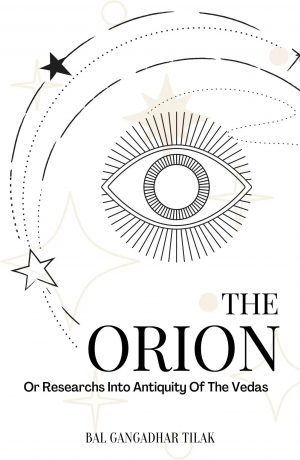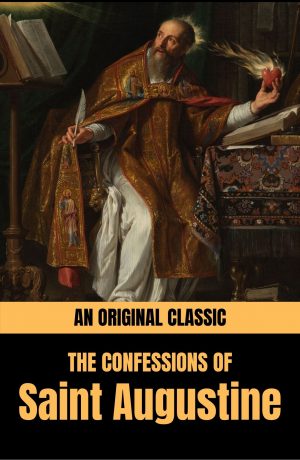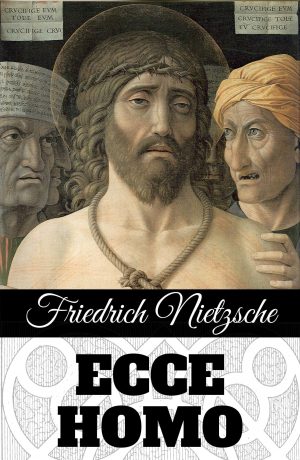The wonder book of bible stories
About the Book: The Wonder Book of Bible Stories The Bible is one of the two or three oldest books in the world, but unlike most ancient books, it is found not only in great libraries but in almost every home of the civilized world; and it is not only studied by learned scholars but read by the common people, and its many stories grasp and hold the attention of little children. Happy is that child who has heard, over and over again, the Bible stories until they have become fixed in his mind and memory, to become the foundations of a noble life. It is with the desire of aiding parents and teachers in telling these stories, and aiding children to understand them, also in the hope that they may be read in many schools, that a few among the many interesting stories in the Bible have been chosen, brought together and as far as necessary simplified to meet the minds of the young.
₹650.00 ₹695.00
Related products
-
Religion & Philosophy
The Orion: Or Researches Into the Antiquity of the Vedas by Bal Gangadhar Tilak (H.B)
 Religion & Philosophy
Religion & PhilosophyThe Orion: Or Researches Into the Antiquity of the Vedas by Bal Gangadhar Tilak (H.B)
0 out of 5(0)ORION AND HIS BELT Agrahdyana Agrayana in the older works.. Probable derivation of hdyana–The Agrayana sacrifices–Their number and nature Performed every half-year in Vasanta and Sharad–Greek legends of Urion-Their similarity to Vedic legends–German traditions and festivities-Stag and hind–Twelve nights-Dogdays-All of which indicate the commencement of the year in Orion –Dr. Kuhn’s explanation is insufficient–The usual adjuncts of Orion–His belt, staff and lion’s skin–The aivyaonghana of Haoma in the Avesta–The yajnopavtta of the Brfthmans– Their sacred character probably borrowed from the belt of Orion or Yajna–Use of mikhald, ajina and danda in the Upanayana ceremony–Probably in imitation of the costume of Orion or Prajftpati, the first of the Brahmans- Derivation of Orion from Agrayana-Its probability–Phonetic difficulties–Conclusion. In the last chapter 1 have quoted an observation of Plutarch that the Greeks gave their own name to the constellation of Orion, and have there discussed some Vedic legends which corroborate Plutarch’s remarks and indicate that the vernal equinox was in Orion at that time. In the present chapter I mean to examine other legends which go to shew that the constellation of Orion was known and figured before the Greeks, the Parsis, and the Indians separated from their common home. and that the legends or the traditions so preserved, and perhaps the name of the constellation, can be naturally and easily explained only on the supposition that the vernal equinox was then near the asteism of Mrigashiras.
SKU: n/a -
Religion & Philosophy
Ecce Homo by Friedrich Nietzsche (H.B)
0 out of 5(0)In late 1888, only weeks before his final collapse into madness, Nietzsche (1844-1900) set out to compose his autobiography, and Ecce Homo remains one of the most intriguing yet bizarre examples of the genre ever written. In this extraordinary work Nietzsche traces his life, work and development as a philosopher, examines the heroes he has identified with, struggled against and then overcome – Schopenhauer, Wagner, Socrates, Christ – and predicts the cataclysmic impact of his ‘forthcoming revelation of all values’. Both self-celebrating and self-mocking, penetrating and strange, Ecce Homo gives the final, definitive expression to Nietzsche’s main beliefs and is in every way his last testament.
SKU: n/a -
Religion & Philosophy
The Confessions of Saint Augustine ( An Original Classic) by Saint Augustine (H.B)
 Religion & Philosophy
Religion & PhilosophyThe Confessions of Saint Augustine ( An Original Classic) by Saint Augustine (H.B)
0 out of 5(0)St. Augustine of Hippo lived a life of sin until his conversion to Christianity at the age of 32. Twelve years later he gave a personal account of his search for truth in The Confessions of Saint Augustine. Augustine, a Latin church father, is one of the most important figures in the development of Western Christianity. In his early years he was heavily influenced by Manichaeism and later by the Neo-Platonism of Plotinus, but after his conversion and baptism (387), he developed his own approach to philosophy and theology accommodating a variety of methods and different perspectives. He believed that the grace of Christ was indispensable to human freedom and framed the concepts of original sin and just war.
SKU: abhtcosa




There are no reviews yet.